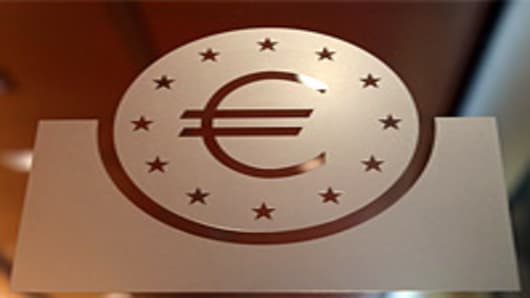Germany and its two closest allies in the euro zone appeared to step back on Tuesday from a key agreement that would free Spain and Ireland of billions in debt incurred through bailing out their banks.
After meeting in Helsinki, the German, Dutch and Finnish finance ministers said in a statement that a plan to move bad bank assets off the books of struggling euro zone governments would not apply to “legacy assets.” This was an apparent reference to banks shored up and wound down under Ireland’s 64 billion euro ($82 billion) bank bailout program.
Although officials did not clarify how the new principles would apply to current cases, the statement also called into question whether the scheme would apply to Spain’s most troubled banks, which are scheduled to be bailed out with euro zone money in November.
“The thorny question is how to distribute existing losses before moving towards a system that entails greater burden sharing,” said Mujtaba Rahman, a Europe analyst at the Eurasia Group risk consultancy.
Madrid on Friday will reveal funding needs for its teetering domestic banking sector. The announcement will start two months of negotiations over how much of the 100 billion pledged in euro zone rescue funds will be used for the bailout.
When the deal was struck at a high-stakes summit in June, it was hailed as a “game changer” since it would break the loop between fragile banks, cash-strapped governments and weak economic growth.
The need for Ireland and Spain to pump billions into their banking sector to keep them afloat forced otherwise fiscally prudent governments into euro zone bailout programs with painful austerity measures that have exacerbated recessions.
Under the June deal, such bailouts would no longer be the responsibility of national governments but would shift to the euro zone rescue fund, the European Stability Mechanism, which was given the authority to inject capital directly into struggling banks. As part of the deal, Ireland was given a promise of equal treatment with Spain.
Spain will begin its drive to recapitalize banks using money channeled via the government in Madrid. Only later will the ESM recapitalize Spanish banks directly.
This was because Germany insisted that the euro zone first needed to create a single bank supervisor for the bloc, which EU officials had hoped to agree by the end of the year.
But Germany has dragged its feet on the establishment of the supervisor. Tuesday’s statement said ESM recapitalizations cannot occur until the supervisor is “established and its effectiveness has been determined” — much more demanding terms than agreed in June. It is a sign the three countries may be attempting to put off the recapitalization scheme indefinitely.
“The ESM can take direct responsibility of problems that occur under the new supervision, but legacy assets should be under the responsibility of national authorities,” said the joint statement, issued by the three finance ministers: Germany’s Wolfgang Schäuble, Finland’s Jutta Urpilainen and the Netherlands’ Jan Kees de Jager.
People briefed on internal discussions said the statement fits a pattern where the German-led group have attempted to renegotiate the June deal, including establishing a “sovereign guarantee” on ESM recapitalizations — essentially putting national governments back on the hook for the debt once the ESM takes over the responsibility.
A spokesman for Ireland’s finance ministry said the joint statement included only “ideas [that will] feed into our discussions”, since they represent only a small, though powerful, group within the 17-member single currency.
Additional reporting by Jamie Smyth in Dublin.


